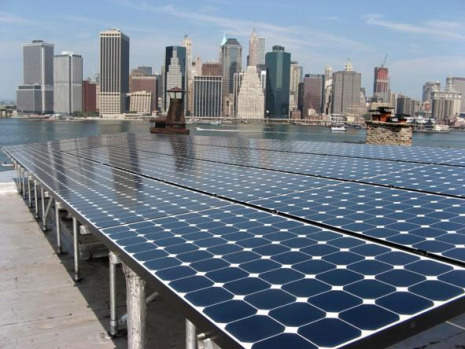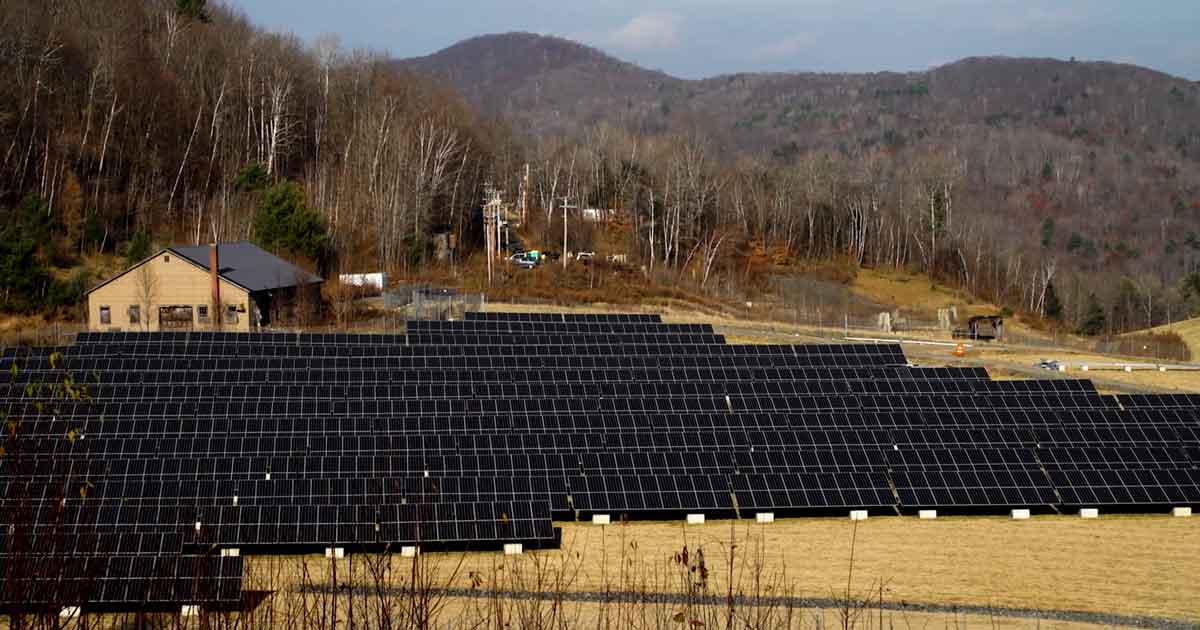
New York has been a leader in advancing solar incentives, such as NYSERDA’s NY-SUN solar rebate program, the New York State Residential Solar Tax Credit and New York City’s Solar Property Tax Abatement. But not all of these incentives benefit everyone equally.
At Solar One we believe that solar energy should be affordable and accessible to all, especially low-income and communities of color that have faced historical and persistent environmental injustices and will bear the brunt of climate change. Our Here Comes Solar team works daily with affordable housing providers, community organizations, low-income homeowners and renters, and community partners to facilitate solar projects that bring clean energy and savings to New Yorkers. Through this work, we have an intimate view of how the various solar incentives, policies, and programs are working, or not, to support people in their efforts to go solar.
Take New York City’s Solar Property Tax Abatement, for example. This incentive allows building owners to reduce their property taxes by 20% of the cost of installing solar. Unfortunately, it does not currently benefit affordable housing or non-profit organizations that are already exempt from property taxes, and thus excludes those who could most benefit from the program. When nonprofit organizations, affordable housing developments, low-income housing cooperatives, and houses of worship cannot take this incentive to reduce costs, it can make or break their decision to go solar. This needs to change by making this incentive “direct-pay” for nonprofits and affordable housing, or in other words, compensating them for what they would have received in a tax reduction.
The Solar Property Tax Abatement is enabled by state legislation but administered and paid for by the city and is set to expire at the end of 2022 unless it is extended. But instead of simply extending the status quo, Solar One is organizing with a coalition of nonprofits, affordable housing and the solar industry to ask New York City and New York State to think bigger and expand this incentive in the following ways:
- Enable Direct Pay to nonprofits and income-restricted affordable housing that otherwise are excluded from receiving this benefit, aligning with Inflation Reduction Act
- Extend to 2034 to create certainty in the market
- Streamline the existing abatements for solar (20%) and storage (40%) into one 30% abatement, allowing the incentive to be taken on hybrid solar and storage systems
- Remove the limit of one abatement per lot to incentivize adding energy storage to solar systems and enhancing climate resilience
- Include solar parking canopy structure costs to take advantage of underutilized open space and create more opportunities for large-scale community solar
Our State Senate and Assemblymembers have introduced bills with these changes, but we need New York City’s support to make our only local solar incentive more equitable. A renewed and expanded NYC Solar Property Tax Abatement can bring solar within reach for thousands of New Yorkers, including:
- Income-restricted affordable housing for low-income households
- Community-based and faith organizations serving local residents
- Community-owned Community Solar projects on affordable housing and community-controlled properties
- Building owners installing hybrid solar and storage to increase resilience in NYC
- New York’s environmental justice communities by increasing local renewable energy production and storage and facilitating the retirement of the dirtiest and most expensive fossil fuel peaker plants
- New York City renters, by incentivizing more large-scale community solar installations on parking lots in the city that renters can subscribe to
With the city’s commitment to building 1,000 megawatts of solar by 2030 and its PlaNYC strategies to scale solar – we need our solar incentives to be accessible and equitable – making sure that the city’s affordable housing and low-income communities benefit from the transition to renewables.
You can help us advocate for more equitable solar incentives today by signing on to this sign-on letter by May 10, 2023 and sharing it with your networks and neighbors. Please feel free to reach out to Solar One’s policy analyst, Kate Selden, with any questions or comments, or if you want to brainstorm more equitable solar policy solutions.

